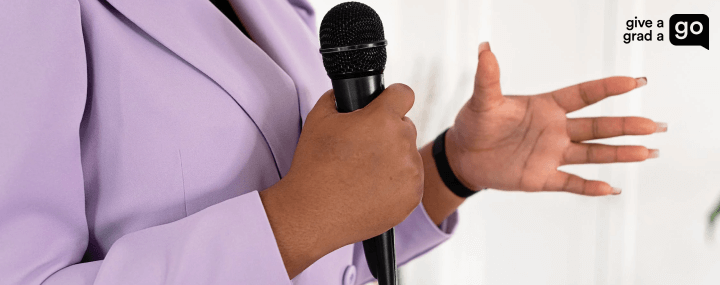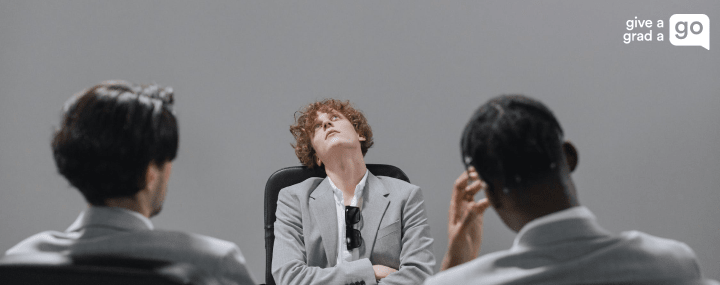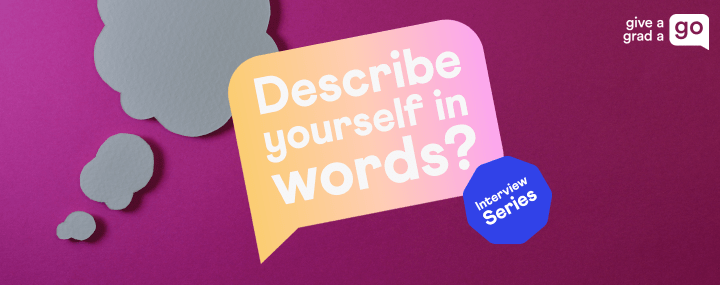Walking away from a graduate job interview that didn’t go to plan can be disheartening as much as confusing.
If you didn’t feel like you showcased enough of your abilities, but the job interview went on for a while – you might have spent most of it, well err, rambling.
Nerves can be the biggest culprit for rambling and if the interviewer isn’t giving anything away, you might find yourself trying to fill the time with as much information as possible.
Take a look at tips on how to relax before interviews.
We’ve found, that when preparing for an interview, it’s best to plan how you’re going to answer an employer’s questions as well as what you’re going to answer.
Learning how to tackle both aspects is important to ensure you respond clearly, so here are a few pointers to remember before your next graduate job interview;
Practice makes perfect-ly rounded answers
Before any job interview, make sure you’re well-prepared for answering those tough interview questions and answers so you’re able to demonstrate the relevance of your experience for the job you’re interviewing for.
And how the graduate job fits in with the career path you’re wanting to take.
Keeping classic interview questions like ‘why do you want to work for us?‘ or ‘what are your strengths and weaknesses?‘ fresh in your mind will help with structuring your responses, as will breaking the interview questions down into 3 digestible and informative points of around 2-3 minutes in total.
For example, answering the question “How do you work under pressure or tight deadlines?”, you could;
– Briefly answer the question
“I think it’s incredibly important when faced with tight deadlines, to keep calm and focused throughout.”
– Explain how you’ve successfully achieved this
“In my previous employment, a client requested a few last-minute changes to one of the projects we were working on.
To ensure we met the deadline, I prioritised accordingly, worked after hours and asked other team members for support when needed.
This kept everything moving at a quicker pace and everyone maintained their level-headed approach, yet extremely focused on the job in hand.”
– Conclude
“Acting fast and efficiently was the best way to approach this task, proven by the success of the final project and satisfaction of the client.”
This example illustrates you should continually refer back to the subject of the interview question, guiding the interviewer along a clear path, right through until the concluding point.
Rounding everything up will reinforce your point, but make sure you keep your conclusion short as you don’t want to start repeating yourself!
Silence can be golden
When you’ve finished answering an interview question, you might not receive the verbal seal of approval you were hoping for.
Body language however, can be a good indication that the interviewer has finished listening to your response; this could be anything from a nod, to a smile, to writing down some notes.
Similarly, body language can also be a sign you’re losing the attention of the interviewer e.g. a sigh or a few glances at their watch can all suggest disengagement.
Make sure you don’t try to fill the silence with excessive talking or ‘rambling’ as that will allow nerves to creep in and you may start talking your way out of the graduate job.
An initial silence after a question will allow time for your response to sink in, whilst giving the interviewer time to react.
Slow and steady could win you the graduate job race
Always making sure the question makes sense to you before answering is a must during an interview.
Don’t be afraid to take a few seconds to fully digest the interview question if you need to.
If you didn’t quite understand the question, politely ask them to repeat it.
They will appreciate your consideration, as it shows you’re taking the job interview seriously.
Jumping into your response, without giving it a proper thought, won’t show you’re focused.
Talking at a million miles an hour is another sign you’re rambling in a graduate job interview.
Slowing down your speech will enable you to keep track of your answer and on the right path.
If you’re speeding along, you may forget your initial point which could leave the interviewer slightly confused by your response.
Additionally, wait for the interviewer to finish talking before responding.
They will want to see you’re attentive and interrupting could quickly remove you from contention.
Even if you’ve thought of the perfect response, wait until the end of question; it could be a two-parter, so you don’t want to miss out!
Saying more doesn’t always mean you know more
The age old cliché, ‘less is more’ can often be applied to a graduate job interview.
You need to get the right balance of saying what you do know without overloading the interviewer – anything you don’t use on this occasion, could be added into a second interview.
For example, when an employer asks ‘what do you know about us?’ don’t overwhelm the interviewer with as many facts about the company you can reel off in a minute, split your answer into three sentences, without repetition – using the below pointers as a guide:
History of the company – founder, company growth etc
What they do – this might seem like an obvious one, but cementing this beforehand is essential
How they fit into the industry they’re in – this gives you the opportunity to show your research and that you understand the line of business they’re in
Again, breaking questions down will help keep your response concise and show the interviewer you’ve really done your employer research.
An employer wants to see a candidate who is genuinely enthused about the company and providing a clear answer will demonstrate your understanding of who they are and what they do.
The quality of your answers will stand out more than how many you can list.
Furthermore, in questions, such as ‘tell me about yourself’, where it’s easy to go off on a tangent, try and reign in the temptation.
You will want to avoid oversharing and revealing so much you’re already using up your pre-prepared answers!
Don’t leave your expertise out to dry
Long-winded answers will show you can’t get to the point and in turn, use up valuable time for questions at the end of the interview.
Asking questions at the end of an interview can be a good way to cleverly make any points you feel you’ve missed and could even be the clincher that gets you the graduate job!
Eating into the allotted time will make everything feel rushed – and you might not get the chance to sell yourself as much as you would’ve liked to.
Find more career advice on our Careers Advice Blog – or check out the latest UK Graduate Jobs!






